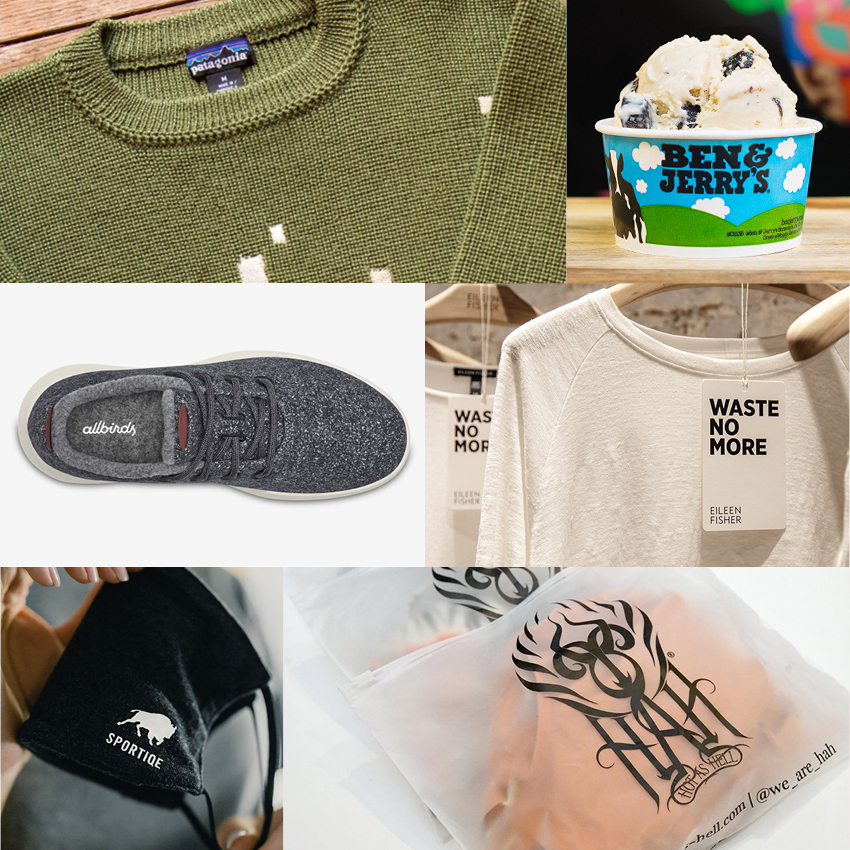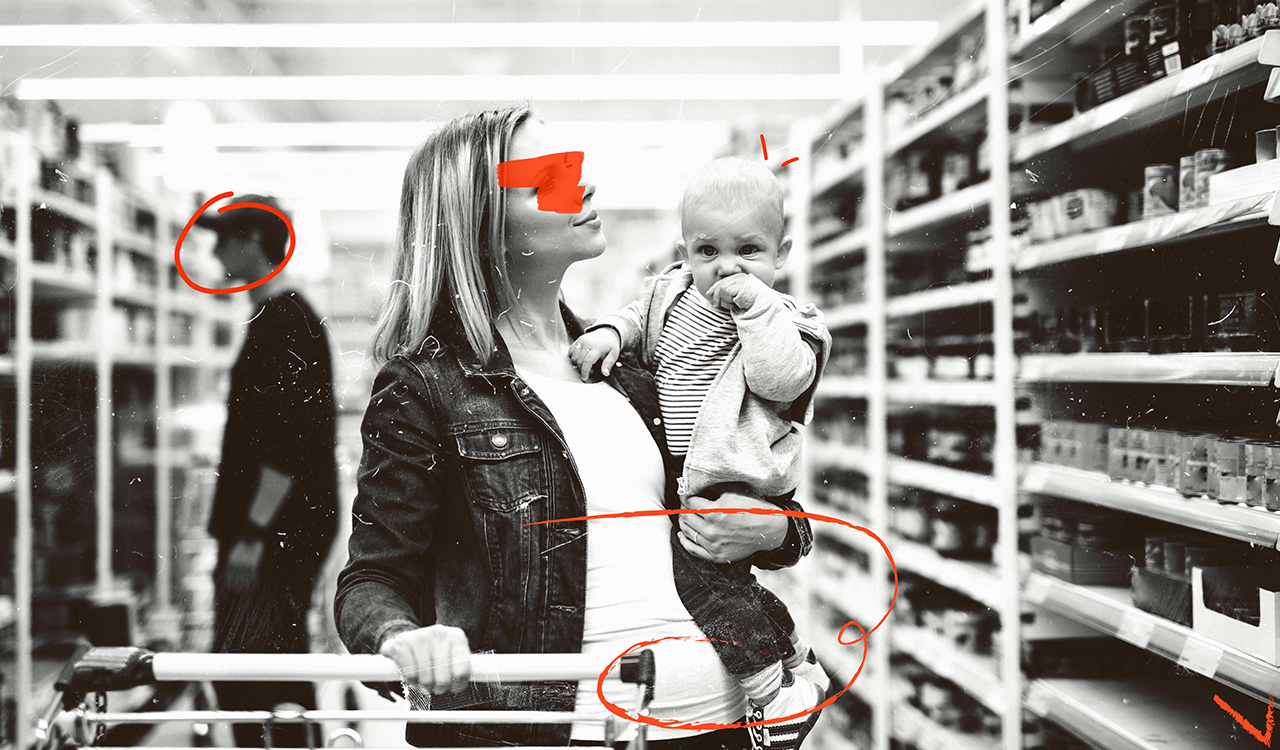Need something to restore your faith in humanity during this time of global chaos? You might be surprised to learn that data from research firms such as Accenture and McKinsey points to a rise in conscious consumption during Covid. In fact, McKinsey reports that concerns such as “how companies take care of the health and safety of their employees” and “sustainable/eco-friendly products” have reached all-time highs in the U.S. and/or Europe.
This is happening on both a consumer and personal level. Individuals are gravitating towards concerns such as the Zero Waste Movement and social justice protests. At the same time, the pandemic has accelerated this shift towards ethical spending.
Laura Hall, Partner at retail consulting firm WHYZ Partners, and author of “The ABCs of Conscious Capitalism for KIDs” attributes the jump in ethical spending to the fact that Covid forced people to stop what they were doing in their everyday lives.
“Because we stopped, we were able (forced) to look and listen more,” she says. “Because of our 24/7 connectivity on social media, what was just a flashlight shining on business practices before Covid quickly became a relentless series of glaring nonstop spotlights.”
Consumers’ exodus to social media during quarantine sparked many conversations about sustainability, racial equality, LGBTQ+ rights and worker treatment. In the words of both Lin Manuel Miranda and the #BlackLivesMatter protesters: “It’s not a moment, it’s a movement.” Conscious Capitalism is also a movement, accelerated by social media usage, call-out culture, and environmental decline.
The Mission of Conscious Capitalism
The aim of Conscious Capitalism is to build brands that have positive benefits both for the communities in which they operate and the planet itself. Hall points to companies affiliated with B Lab, a nonprofit focused on “people using business as a global force for good,” as a shining example of retailers doing an excellent job of reaching out to their brands and to consumers during this time.
Hall lists Eileen Fisher, Patagonia, Ben & Jerry\’s, and All Birds as leaders in the Conscious Capitalism movement. B-Lab’s doctrine illustrates her point:
“We each make small changes in our daily lives, our efforts add up to a much larger cumulative action. You can vote every day for companies you believe in.”
Hall also points to Imperative 21, a coalition of six conscious business organizations. The six business groups involved in Imperative 21 include: Conscious Capitalism, B Lab, Center for Inclusive Capitalism, B Team, Chief Executives for Corporate Purpose, and JUST Capital––which published a Covid-19 Corporate Response Tracker of the top 301 companies during the crisis.
Matt Altman is Co-founder and CEO of ethical fitness apparel brand, Sportiqe. Since the outbreak, Sportiqe has begun selling affordable face masks and donating 10 percent of all sales to healthcare workers fighting on the frontlines. He says that operating a conscious capitalist business has provided guidelines for his team on how to best navigate the challenges that came with the pandemic:
“Having a Northstar of purpose and values helps with decision making and strategy for what is best for not only the company, but all stakeholders involved,” Altman says. “From investors, employees, customers, and supply chain. Taking care of all stakeholders is important.”
“We are all in this together,” he adds.
How Operations Have Shifted
To say that Covid-19 has dramatically altered the retail landscape is an understatement. Retailers are stocking fewer SKUs and focusing on top-selling, utilitarian inventory items. Apparel retailers have had to stock different assortments based on customer demand.
Athleisure and activewear are clear winners. Allied Market Research reports that athleisure market in the U.S. was valued at $155.2 billion back in 2018, but it’s expected to jump to $257.1 billion by 2026.
[callout]“It’s not a moment, it’s a movement.” Conscious Capitalism is also a movement, accelerated by social media usage, call-out culture, and environmental decline. [/callout]
While analysts once predicted that the enthusiasm for athleisure would die down, the category rose to new heights during the pandemic. Sharleen Ernster is the Founder and CEO of Los Angeles-based sustainable fashion brand We Are HAH. Business is booming for her comfortable and sustainable fashion line.
“I am seeing a deeper interest in the apparel sector in consciously produced products from a wider group of consumers,” Ernster says. “As seen through all of our social platforms, the industry at large, media, and personal customer reviews.”
She continues, “In addition, major retailers who have been naysayers or could not be bothered to market green brands for years, are now clamoring for the brands, product and marketing assets.”
Ernster says that in the food and beverage sectors, sustainability has been appreciated for many years. However, “in apparel and fashion, sustainability and conscious product creation has not been paramount to consumers and less so by retailers.”
She says she’s, “Happy to say that Covid has definitely moved the conversation forward for the fashion industry.”
Booming Product Categories
Even fashion categories that traditionally don’t intersect with athleisure are becoming more casual. In fact, 82 percent of consumers say that they will be more likely to look for work clothing that is designed to be more versatile––meaning it can be worn commuting, at work, and after work. The brands that offer comfort and versatility with a feel-good sustainability bent will be more resilient than those that are still trying to hawk categories like evening wear––that frankly feel irrelevant in the current climate.
We are HAH is an example of a brand toeing the line between comfort and ethos. Ernster says they’re in a “constant state” of evolving their raw materials, processes and packaging. “We believe in the simple power to #startsomewhere & realize that our journey to circularity is the long-term goal. The short term is to leave a lighter and lighter footprint on Mother Earth.”
She lists we are HAH’s top selling “proudest innovations” in the past four months, which include:
- A plant based, “Au Naturals” undies collection. Second skin undies made of corn sugar-based fabric.
- Unisex Satin PJ and Sleepwear made of recycled plastic polyester.
- Evolving Lace Lingerie that’s made using 66 percent recycled fibers.
All of Ernster’s products are also made using green printing and packaging processes. This is no small order for retailers, but it’s what it takes to remain relevant today. Ernster says that she has personally read thousands of detailed customer reviews during lockdown. “Not only the review of the products basic fit etc., but the meaning of the purchase and how it makes them feel. In addition, being part of a conscious brand, learning about how the product is made and why has become MORE meaningful for the consumers.”
She has also witnessed an increase in discourse surrounding human rights on her fashion brand’s platform. Consumers are increasingly concerned with her brand’s stance on: #BLM, politics, women rights, LGBT causes, climate action, and treatment of both people and the planet.
“I answered many letters on these topics & endured the anticipation of the possible loss of consumers due to our clear support of all the issues we stand for as a woman-owned and operated small, conscious business,” Ernster says.
We Are HAH received an influx of direct messages from supporters of their stance and engagement with consumers “on every single platform.” Ernster says she’s seen “truly remarkable, significant change” in public and private one-on-one discourse with concerned consumers.
Prepare for the Next Wave of Conscious Capitalism
So, how can companies that have traditionally been reluctant to adopt sustainable production dip their toes into the Conscious Capitalism pond? Altman says it all starts with being about “more than just selling a product.” He suggests that to remain profitable, companies need to “evolve to have a unique purpose for existing that enables them to give back to the community.”
“Really having healthy stakeholder integration is critical moving forward,” Altman says. “Creating win-win scenarios for all stakeholders involved. Anyone that is lopsided will not allow companies to scale sustainably and survive any other turbulence in the market.”
Patagonia is a great example of this. The brand scales sustainably through its activity in environmental policy discussions and connecting to active lifestyle consumers with targeted content that pertains to their unique interests––such as the powerful Stone Locals feature film on rock climbers and their lives.
While brands used to tell consumers what to buy, where to buy, and how much to pay, Laura Hall says that the consumer now dictates this activity. “Any business that has not realized that stakeholder capitalism is the future, as opposed to shareholder ‘decide and announce’ capitalism, is in for a rude awakening and is part of the problem, not part of the solution.”
Hall continues, “This perfect storm triangle of global health crisis, global economic crisis and global social justice crisis is an opportunity.”
It is human nature to look for opportunity in even the most jarring global crisis. Consumers are using this turbulent time to look within, and to make some changes to how they function in the world. This is evidenced in strong global participation in social justice movements, how people are altering their lives to exist more sustainably, and how they “vote with their dollar.” In closing, Hall quotes Paul Hawken, the American environmentalist and author of Project Drawdown:
“Maybe this didn\’t happen to us but happened for us.’”




